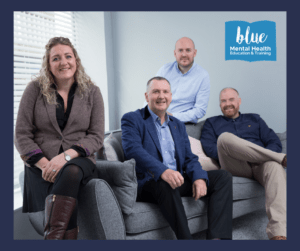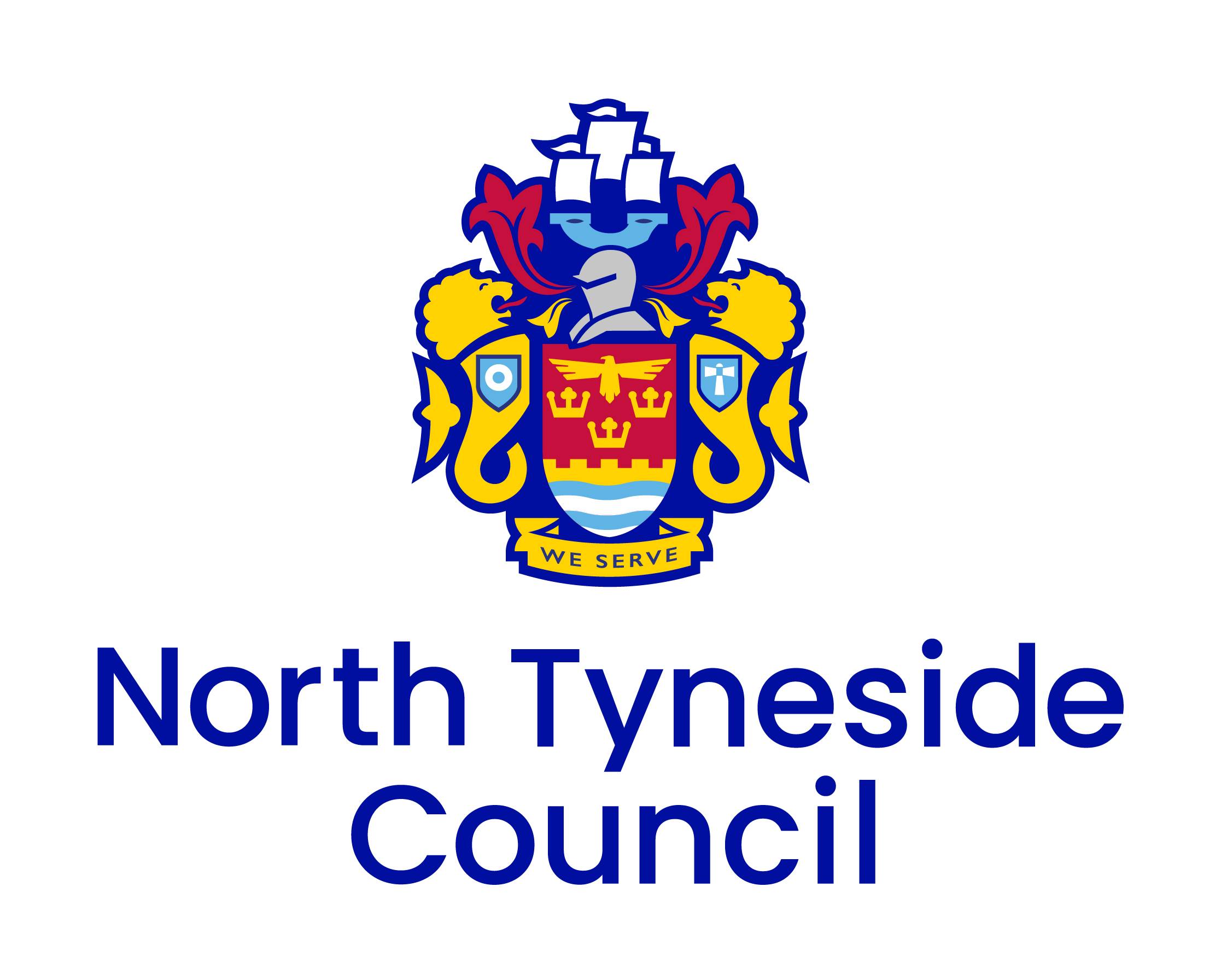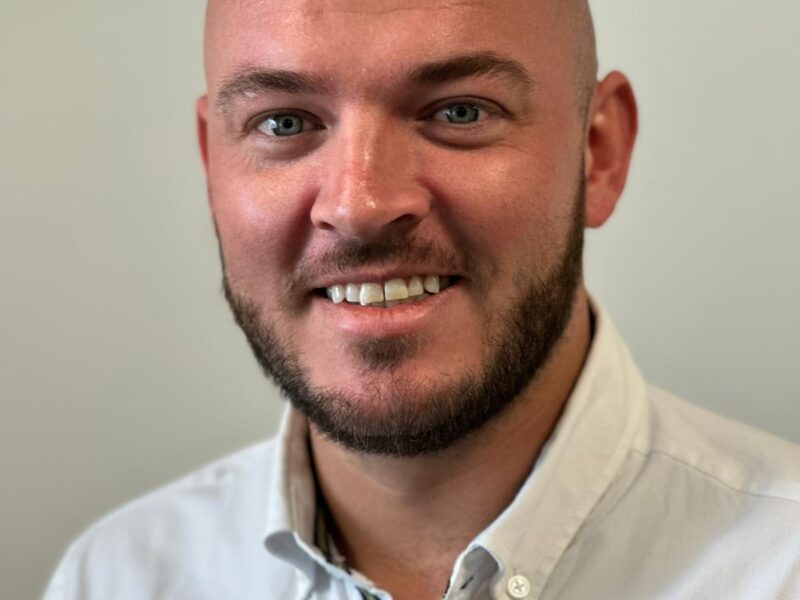Talking and sharing problems, issues or worries can be one of the best ways to fend off mental ill health. Time to Talk Day falls on 2nd February 2023, so we decided to talk to one of our members, Blue Talking Therapies, to find out more about what they do, how they help their clients and what Time to Talk Day means to them.
Rebecca Meagher is one of the founders of Blue Talking Therapies and she told us more about the business.
About Blue Talking Therapies
I’m Rebecca and I founded Blue Talking Therapies with my business partner Johnny Morton in 2012. We did so after a rise in local people requesting a choice of service in the mental health field. We are a team of fully accredited Cognitive Behavioural Therapists specialising in common mental health problems such as worry, social anxiety, panic, Obsessive Compulsive Disorder (OCD), phobias, depression and Post Traumatic Stress Disorder (PTSD).

We started out treating our clients from an attic room at Pilates at the Coast in Whitley Bay. We would both work outside of business hours while keeping up our full-time jobs with other services. As we got busier our team expanded, and we currently have a team of nine working out of a building we transformed for purpose during the Covid pandemic. We’re now based in a wonderful, welcoming place on Howard Street in North Shields.
What is your approach to mental health?
Our philosophy is simple; anyone can experience a common mental health problem at any time. In fact, it is highly likely that everyone will struggle at some point in their lives. At any given time, around one-in-three of us is suffering with a common mental health problem. We wanted to create a welcoming, normalised service where we treat everyone who walks through our door as family.
We recognise that the term ‘mental health’ still comes with a negative image attached, despite lots of hard work to make this area less taboo and stigmatised. Our ambition was, and still is, to change that view within our local area.
We wanted local people to see that our space was entirely non-clinical and that the help they would receive would be offered by a compassionate face in a way that was fitting for each individual who comes through our doors.
As an example of our approach, if we’re supporting someone to manage a phobia, we don’t treat them only by exposing that person to images on an iPad within the four walls of a therapy room. We get out with our client and exposing him or her to real-life triggers, while in the company of a compassionate and understanding expert.
What challenges does your industry face?
Mental health, unfortunately, has always been the poor relation in terms of knowledge, support and outcomes. We often ask people if they can list five things they can do to promote physical health. Children and adults alike can answer this easily. But when asked to state five things they can do to improve their mental health, the result is too often silence.
Most of us know that exercise, diet and sleep can contribute to better mental health, but we also promote ‘doing’ as a key contributing factor to improving wellbeing – connecting with others, learning a new skill and being in the present moment without a stream of concerns playing in our mind.
How do you help your clients improve their mental health?
Nothing changes by doing the same thing. So much of our support centres around finding ways to set new goals for the target problem, working out what keeps our clients feeling trapped and getting stuck in and changing this together. This includes working on any cycles we may be stuck in with both our thoughts and our behaviours, as both of these have direct links to every feeling we have.
Talking therapies allow the client to be in control. We go through a collaborative process where the client plans and executes all changes, while we stay curious with them, helping to find solutions and metaphorically hold their hand while they go through this process.
‘Holding’ people is key to success. Being able to encourage trust and maintain close support helps people work through some of the toughest times in their lives. When people come to us, they are generally unhappy with certain elements of their lives, but the motivation for both the client and us is that they will most definitely not be in the same place when they leave our clinic for the final time. Being able to say to someone, “I’ve got you” can bring such relief.
Overall, we simply want to help people see that change can happen, this will get better, and experiencing distress is absolutely nothing to be ashamed of. Mental states can fluctuate by the minute and the hour, so no one is what they feel permanently.
What is your hope for mental health support?
Mental health support should be on every high street, up and down the country. That is why we chose to be located in the heart of our local community on Howard Street, unapologetically in the centre of our town.
We want to share with our local community and wider, you are not alone and getting help sooner can improve your wellbeing faster.
How will you be celebrating Time to Talk Day?
Time to Talk Day is close to our hearts in that it is about bringing communities and people closer together and TALKING – that’s exactly our mission. We won’t necessarily be doing anything different on the day itself, simply delivering our services to help our clients talk through their issues and find solutions to suit them.
We also have a sister company, Blue Mental Health Education and Training, which works to educate our children in school about mental health. By doing so, we hope to change the narrative for our future generations and hopefully reduce the number of adults experiencing life-long distress.
Let’s keep talking!


